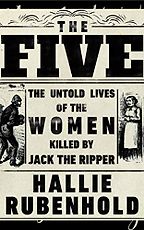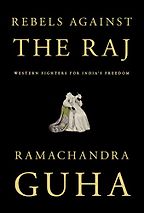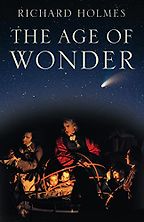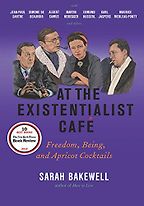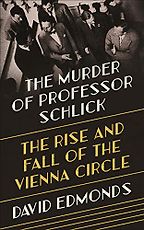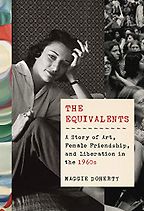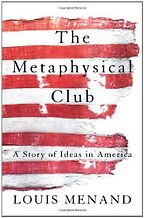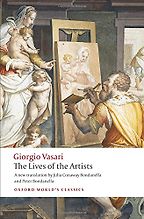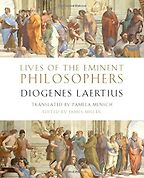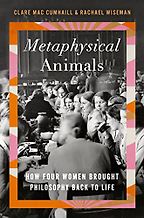Group Biographies
Last updated: October 21, 2025
Below you'll find some of the group biographies recommended in Five Books interviews. In her interview with us, German-British historian Andrea Wulf credits the book The Lunar Men (2002), by British biographer Jenny Uglow, with marking "the beginning of the very interesting form of group biography, where you don’t have to begin with birth and end with death but you can just pick the best bits. I once heard her explain that a group biography is like an opera: some people are singing solo and others duets, while others appear only in the choir." We've also included some earlier works, as the ancients were also keen writers of biographies of multiple people, often as examples of how—or how not to—live.
“This absorbing audiobook looks at the lives of three jazz greats—Miles Davis, John Coltrane, and Bill Evans. Their lives were challenging and full of pathos, which narrator Dion Graham captures with the empathy and vocal talent he’s known for. Pauses, pitch patterns, and finely modulated intensity make his performance sing but never upstage the drama.” Read more...
“Johnny Heller’s moving performance of this excellent audiobook is never out of sync with the shifting moods and overall poignant content offered by the articulate congressman and his cowriter. The authors recount the stories of 12 prominent people with psychiatric disorders as they struggled to manage their symptoms, seek help, and integrate their conditions with their work and personal relationships.” Read more...
“The book is very readable, and Norwich does a wonderful job of identifying, beyond national concerns, the kinds of challenges that these four figures faced in a 16th-century environment. Norwich was not a professional historian and he tells their stories from a personal perspective. There’s a risk to his book because it places the individual person at the center, but it’s a great introduction to a global understanding of 16th-century history. As you’re reading you notice, ‘Oh! this happened to Süleyman. Then the same thing happened to Francis I. How come?’ And you start thinking about the dynamics of the period…There are a couple of mistakes in the Ottoman sections. But it’s entertaining to read and I enjoyed it tremendously. He was a great writer. It shows that with the right mindset, you don’t have to know Ottoman Turkish to have a decent understanding of the Ottomans.” Read more...
The best books on Sultan Süleyman
Kaya Şahin, Historian
The Five: The Untold Lives of the Women Killed by Jack the Ripper
by Hallie Rubenhold
🏆 Winner of the 2019 Baillie Gifford Prize for Non-fiction
“Hallie Rubenhold, the author of The Five, has researched the lives of these five women absolutely brilliantly. It’s a great piece of detective work into some very obscure sources…She really disproves what the ‘Ripperologist’ literature says about the victims and recovers these women’s lives with a good deal of sympathy. It’s a moving book. It’s humane, it’s scholarly, and it challenges, from a feminist position, a whole library of books on Jack the Ripper.” Read more...
The Best History Books: the 2020 Wolfson Prize shortlist
Richard Evans, Historian
The Invention of Marxism
by Christina Morina
Translated from German, The Invention of Marxism is a “search for the origins of Marxism” which looks at the biographies of nine 19th-century individuals, including Lenin and Rosa Luxemburg as well as lesser-known figures. By doing so, it helps shed light on how Karl Marx—a penniless German philosopher who lived in exile in London—came to be what she calls the "(unintended) godfather of one of the most destructive social experiments in human history."
Rebels Against the Raj
by Ramachandra Guha
🏆 Winner of the 2023 Elizabeth Longford Prize for Historical Biography
The foreigners who fought against Franco in Spain are much feted in literature and the popular imagination, those who helped India fight for its independence from the British Empire not so much. In this book, Indian historian Ramachandra Guha tells the story of seven of them (five Brits and two Americans), rescuing them from obscurity.
“It’s a splendid book…It’s a group biography of writers and scientists in the late 18th and early 19th century—Herschel and Humphrey Davy on the science side, and the Romantic poets, mostly in England, and their engagement with the sublime and with science. Among Holmes’s qualities are his warmth, his extraordinary depth of knowledge and the fluency in his writing. It’s just a really enjoyable read.” Read more...
The best books on Science and Wonder
Caspar Henderson, Journalist
“If you wanted to understand why anthropology matters you couldn’t get a better book. He’s both gifted and careful….The person who actually knows stuff but doesn’t bore you to death. And that’s not as easy to find as you would like.” Read more...
The best books on Global Cultural Understanding: the 2020 Nayef Al-Rodhan Prize
Patrick Wright, Historian
At The Existentialist Café: Freedom, Being, and Apricot Cocktails
by Sarah Bakewell
***🏆 A Five Books Book of the Year ***
“This is the best philosophy book that I’ve read this year. What Sarah Bakewell has managed to do is combine the story of predominantly French existentialism (focusing on Sartre and de Beauvoir as well as Merleau-Ponty) with digressions about Heidegger and others. She’s combined that with some autobiographical elements and a real passion for the subject…only a truly exceptional writer could combine that many biographies, that many different, sometimes quite complex, philosophical positions, and still tell a plausible and engaging story. She’s done that, which is quite remarkable. In doing this she is resurrecting Sartre and the existentialism of the 1940s, which, in some ways, is considered passé, particularly in France. The result is empowering for people to read. So I think this is a superb book. Everyone should read it.” Read more...
The Best Philosophy Books of 2016
Nigel Warburton, Philosopher
The Murder of Professor Schlick: The Rise and Fall of the Vienna Circle
by David Edmonds
***🏆 A Five Books Book of the Year ***
“It’s not a crime novel, but an account of how the influential school of positivism—secular, empirical, and contemptuous of metaphysics—flourished in the 1930s. The book vividly brings alive the leading lights from Gödel to Wittgenstein, some of whom were pretty eccentric. It was all in the shade of a deteriorating political landscape. The shooting of Moritz Schlick, considered the Circle’s founder, on the steps of the university in 1936, was followed by the group’s decline with the flight into exile of its leading members.” Read more...
Nicholas Parsons, Historian
“The Equivalents is magnificent social history, a collective snapshot of an overlooked moment in American feminism; we meet these women crossing the bridge between first and second wave feminism. The institute provided them with the rooms of their own to which Virginia Woolf had aspired, but it turned out they needed more of E M Forster’s edict to ‘only connect.'” Read more...
The Best Biographies: the 2021 NBCC Shortlist
Elizabeth Taylor, Biographer
“Suetonius has been the most influential in shaping what we think of the Roman emperors. So if you’re going to make a documentary on Caligula or Nero, for example, Suetonius will be your first port of call…So with Suetonius, we come to a great storyteller. It is a good read, with all of the racy gossip about the emperors. Then the question is, how much of it is true?” Read more...
“It’s a beautifully crafted group biography about the birth of the first American school of philosophy – pragmatism. Pragmatism is an idea about ideas. The gist is to assess theories based on their efficacy. Menand describes ideas as being like microchips or screwdrivers, tools that help us achieve results. That concept sprung from this generation. So, the four figures it tells this birth story through are Oliver Wendell Holmes, who became the legal embodiment of pragmatism, William James, who is the philosopher of pragmatism, Charles Pierce, who was James’s mentor, and John Dewey, who made James’s ideas more coherent and more part of popular conversation.” Read more...
The best books on The Roots of Liberalism
Franklin Foer, Journalist
“With Vasari, we begin thinking that artistic biography might matter. As much as we may want to resist the notion that biography is central to understanding art, it seems as though it is just inevitable – the life of the artist is an inevitable element in considering the art itself, as Vasari realised early on.” Read more...
Blake Gopnik, Art Historians, Critics & Curator
Lives of the Eminent Philosophers
Diogenes Laertius (ed. James Miller, trans. Pamela Mensch)
“Diogenes is very keen on making this a personal story. He’s both interested in telling us all sorts of odd and fantastical stories about the individual philosophers, but he’s also very interested in showing how each of these individual philosophers was influenced directly and personally by other predecessors. I think of it as a family tree of philosophies with Epicurus as the final branch of one of those trees.” Read more...
The best books on The Epicureans
James Warren, Philosopher
Metaphysical Animals: How Four Women Brought Philosophy Back to Life
by Clare Mac Cumhaill & Rachael Wiseman
The story of four mid-20th century philosophers based in Oxford—Elizabeth Anscombe, Iris Murdoch, Philippa Foot and Mary Midgley. With many men who typically dominated academic philosophy away fighting World War II, they were able to make their own mark, arguing for a greater place for metaphysics in philosophical discourse.



